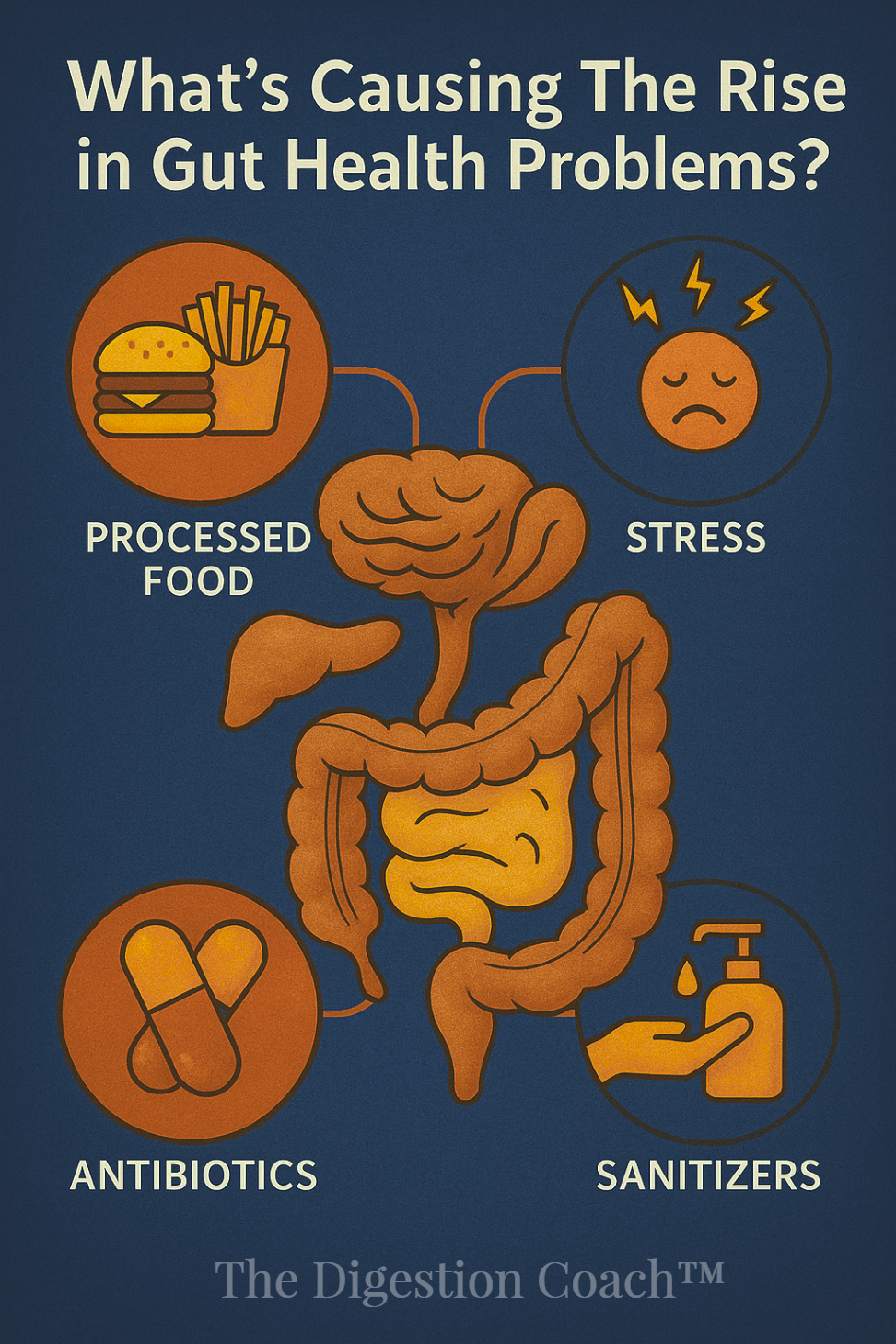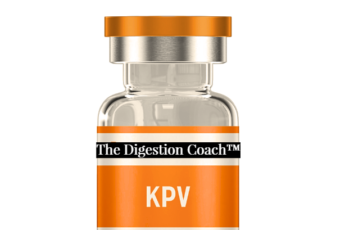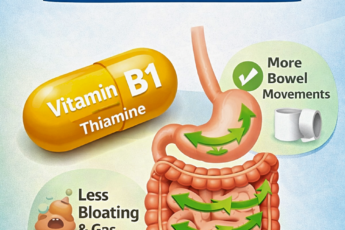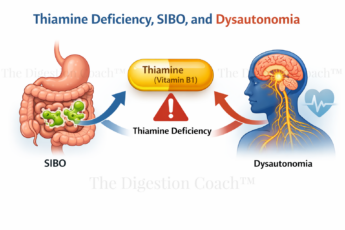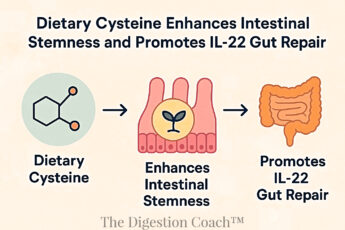Why Are Gut Health Problems on the Rise?
Gut health issues have grown over the past 10 years, affecting millions of people. From mild discomfort to serious diseases, gastrointestinal (GI) problems are a big concern. This blog looks at common GI issues like Inflammatory Bowel Disease (IBD), Irritable Bowel Syndrome (IBS), SIBO, acid reflux (GERD), colorectal cancer, and liver diseases. We’ll explore why they’re increasing and what’s causing this trend.
A Growing Health Problem
Your digestive system works hard to break down food, take in nutrients, and keep you strong. But GI problems have become more common, making life harder and putting pressure on doctors and hospitals. Digestive issues like acid reflux or severe gut diseases are no longer rare. Over 4.9 million people had IBD worldwide in 2019. This rise is a sign we need to learn what’s causing our gut health problems and how to fix them.
What’s Causing The Rise In Gut Health Problems?
Several things are making GI problems more common. They come from how we live and the changes around us. Here are the main causes:
- Unhealthy Diets: Processed foods with lots of sugar and little fiber hurt gut bacteria. This causes inflammation and sickness. Fast food diets, now common worldwide, are tied to more IBD in places like India.
- Stress: Too much stress messes with how your gut moves food, worsening IBS. Many people notice gut problems when stressed.
- Harmful Substances: Pesticides, microplastics, and pollution can weaken your gut, making diseases like Crohn’s or colitis more likely.
- Gut Bacteria Problems: Antibiotics, bad diets, and infections can upset the balance of gut bacteria, which can lead to IBD or IBS.
- City Life and Aging: Living in cities and getting older are linked to more gut health problems, such as cancers and liver problems.
These causes work together, making digestive issues more common around the world.
Inflammatory Bowel Disease (IBD): A Growing Issue
IBD, which includes Crohn’s disease and ulcerative colitis, is one of the fastest-growing gut problems. It causes long-term gut inflammation and affects over 10 million people. Cases rose by 47% from 1990 to 2019. The U.S. and China have the most cases, and places like India see more young adults with IBD.
What’s behind this? Fast food diets, genes, smoking, and stress play big roles. Unbalanced gut bacteria also drive IBD, but treatments like probiotics show promise. There’s no cure, but early medicines can help people feel better.
Irritable Bowel Syndrome (IBS): Stress and the Gut
IBS causes belly pain, bloating, and changes in bowel habits, like constipation or diarrhea. It’s becoming more common, and stress often triggers it. IBS doesn’t inflame the gut like IBD, but it still makes life tough.
You can manage IBS by reducing stress and watching what you eat. Avoiding foods that cause issues and relaxing with mindfulness can help. Diagnosing IBS is tricky because it looks like IBD, but new tests are making it easier. As stress grows in our busy world, IBS will likely stay a problem. See – Stress and Digestion
Acid Reflux (GERD): A Burning Problem
GERD happens when stomach acid flows back into your esophagus, causing heartburn. It affects about 20% of adults in wealthy countries. Obesity, unhealthy diets, and sitting too much have made GERD and other digestive issues more common since 2000. Constant heartburn can lead to serious issues, like a condition that raises cancer risk.
To manage GERD, lose weight, skip spicy foods, and try medicines like acid blockers. Acting early prevents lasting damage. With more people gaining weight, GERD will likely keep increasing, so prevention is key.
Colorectal Cancer: Hitting Younger People
Colorectal cancer affects the colon and rectum and is a major worry because it’s rising in younger adults. It’s a top cause of cancer deaths in the U.S., and screening now starts at age 45 for most people. Those with IBD or a family history have a much higher risk.
Regular screenings, like colonoscopies, catch early signs and save lives. Eating more fiber and staying active can prevent it. Junk food and lazy lifestyles are big reasons for the rise, so we need campaigns to reach younger people.
Liver Diseases: A Quiet Threat
Liver diseases, like non-alcoholic fatty liver disease (NAFLD) and cirrhosis, are growing due to obesity, alcohol, and toxins. NAFLD, where fat builds up in the liver, can lead to inflammation or scarring and affects millions. It’s hard to spot early because it has no symptoms until it’s serious.
Losing weight, controlling blood sugar, and drinking less alcohol help a lot. New treatments are being studied, but preventing digestive issues is the best approach. As cities grow and obesity rises, liver diseases will become a bigger health issue.
Conclusion: Taking Care of Your Gut
Gut health problems have increased over the last 10 years because of how we live, what’s around us, and society’s changes. From IBD’s inflammation to silent liver issues, these problems need our attention. Eating better, handling stress, and seeing a doctor early will support digestive issues. Research into gut bacteria and new treatments gives hope. Let’s focus on gut health—it leads to a healthier life.
References
- Dutta, A. K. (2024). Indian Journal of Gastroenterology—January–February 2024 issue highlights. Indian Journal of Gastroenterology, 43(1), 1–6. https://doi.org/10.1007/s12664-024-01547-9
- Wang, R., Li, Z., Liu, S., & Zhang, D. (2023). Global, regional, and national burden of inflammatory bowel disease in 204 countries and territories from 1990 to 2019: A systematic analysis based on the Global Burden of Disease Study 2019. BMJ Open, 13(3), e065186. https://doi.org/10.1136/bmjopen-2022-065186 PMCID: PMC10069527 PMID: 36977543
- Jardim, S. R., de Souza, L. M. P., & de Souza, H. S. P. (2023). The rise of gastrointestinal cancers as a global phenomenon: Unhealthy behavior or progress? International Journal of Environmental Research and Public Health, 20(4), 3640. https://doi.org/10.3390/ijerph20043640 PMCID: PMC9962127 PMID: 36834334
- Shen, Y., Fan, N., Ma, S., Cheng, X., Yang, X., & Wang, G. (2025). Gut microbiota dysbiosis: Pathogenesis, diseases, prevention, and therapy. MedComm, 6(5), e70168. https://doi.org/10.1002/mco2.70168 PMCID: PMC12006732 PMID: 40255918
- Madison, A., & Kiecolt-Glaser, J. K. (2019). Stress, depression, diet, and the gut microbiota: Human–bacteria interactions at the core of psychoneuroimmunology and nutrition. Current Opinion in Behavioral Sciences, 28, 105–110. https://doi.org/10.1016/j.cobeha.2019.01.011 PMCID: PMC7213601 NIHMSID: NIHMS1584696 PMID: 32395568
- Ali, A., & Al Hussaini, K. I. (2024). Pesticides: Unintended impact on the hidden world of gut microbiota. Metabolites, 14(3), 155. https://doi.org/10.3390/metabo14030155
- Bora, S. S., Gogoi, R., Sharma, M. R., Anshu, Borah, M. P., Deka, P., Bora, J., Naorem, R. S., Das, J., & Teli, A. B. (2024). Microplastics and human health: Unveiling the gut microbiome disruption and chronic disease risks. Frontiers in Cellular and Infection Microbiology, 14, 1492759. https://doi.org/10.3389/fcimb.2024.1492759 PMCID: PMC11635378 PMID: 39669275
- Patangia, D. V., Ryan, C. A., Dempsey, E., Ross, R. P., & Stanton, C. (2022). Impact of antibiotics on the human microbiome and consequences for host health. MicrobiologyOpen, 11(1), e1260. https://doi.org/10.1002/mbo3.1260 PMCID: PMC8756738 PMID: 35212478
- Zhou, J. L., Bao, J. C., Liao, X. Y., et al. (2023). Trends and projections of inflammatory bowel disease at the global, regional and national levels, 1990–2050: A Bayesian age-period-cohort modeling study. BMC Public Health, 23, 2507. https://doi.org/10.1186/s12889-023-17431-8
- Jedel, S., Beck, T., Swanson, G., Hood, M. M., Voigt, R. M., Gorenz, A., Jakate, S., Raeisi, S., Hobfoll, S., & Keshavarzian, A. (2022). Mindfulness intervention decreases frequency and severity of flares in inactive ulcerative colitis patients: Results of a Phase II, randomized, placebo-controlled trial. Inflammatory Bowel Diseases, 28(12), 1872–1892. https://doi.org/10.1093/ibd/izac036 PMCID: PMC9713500 PMID: 35661212
- Chang, P., & Friedenberg, F. (2013). Obesity & GERD. Gastroenterology Clinics of North America, 43(1), 161–173. https://doi.org/10.1016/j.gtc.2013.11.009 PMCID: PMC3920303 NIHMSID: NIHMS552827 PMID: 24503366
- Sung, H., Siegel, R. L., Laversanne, M., Jiang, C., Morgan, E., Zahwe, M., … & Jemal, A. (2025). Colorectal cancer incidence trends in younger versus older adults: An analysis of population-based cancer registry data. The Lancet Oncology, 26(1), 51–63. https://doi.org/10.1016/S1470-2045(24)00600-4
- Song, M., Chan, A. T., & Sun, J. (2020). Influence of the gut microbiome, diet, and environment on risk of colorectal cancer. Gastroenterology, 158(2), 322–340. https://doi.org/10.1053/j.gastro.2019.06.048
- Hsu, Y.-C. (2023). Uncovering the silent killer: Research highlights on chronic liver diseases. Digestive Diseases, 41(4), 645–646. https://doi.org/10.1159/000530349
